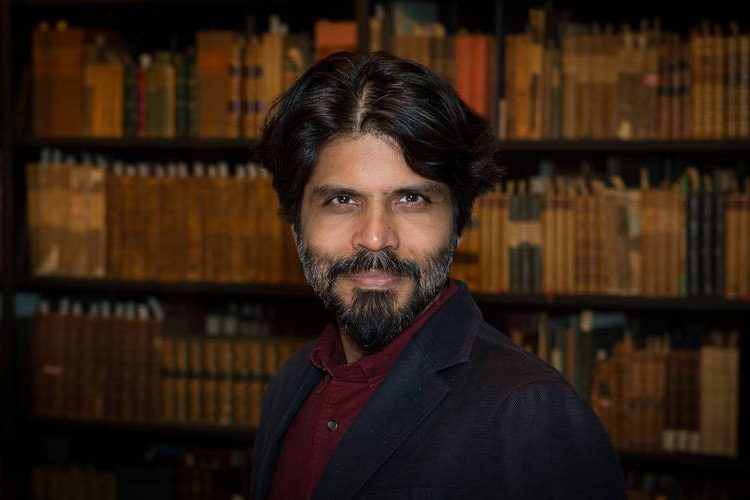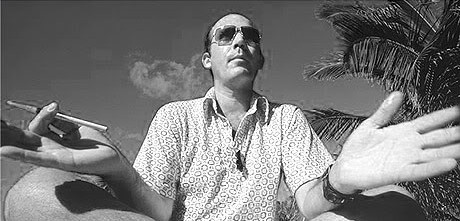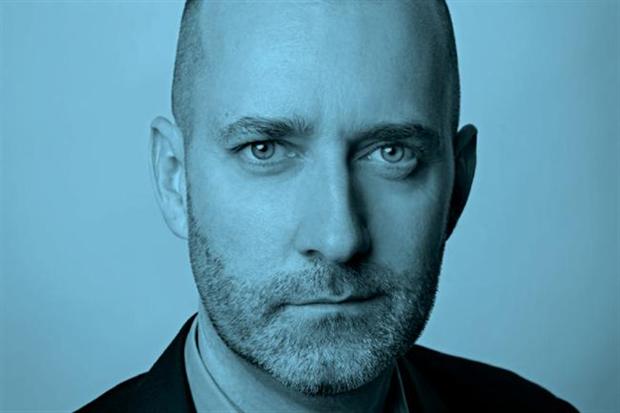The award-winning author and essayist’s new book is a cautionary tale set during the many upheavals of the 21st century. The National, March 22
Over his fascinating career as a writer, thinker and essayist, Pankaj Mishra has written searing histories of colonialism, and explored his concerns about a global pandemic of rage, populist revolt and fanaticism. But in his first novel in 20 years, he found a deeper truth in the emotional lives of people trying to navigate the many upheavals of the 21st century. A place where he didn’t have to be a polemicist for hire but could ask questions, leave ideas unresolved.
“Being a novelist enables you to hold a conversation with different parts of yourself,” he says. “And be critical of your own milieu, too …”
Run And Hide does feel as much of a warning to the world as Age Of Anger, his 2017 non-fiction book which argued that social, economic and political disenfranchisement was causing global disorder.
A group of friends who meet at the Indian Institute of Technology take every opportunity available to them at the turn of the century to succeed. Aseem is a media personality and novelist, Virendra is a Dalit who becomes a Wall Street billionaire. It’s only our narrator, Arun, who is reluctant to follow the money, checking out of the expected career path to become a translator in the Himalayas. They have all come from nothing. What they choose to do with their previously unimaginable amounts of financial and social capital is a lesson for our times.
There’s become this obligation to reinvent yourself to survive this new world. You might have to give up languages or religions that you grew up with in order to become ‘modern’.
Pankaj Mishra
“Just about anything they want is available to them by the time they reach middle age, and that is the experience of a certain generation in India when it opened up to economic liberalisation and globalisation was becoming a reality,” says Mishra.
“They were perfectly positioned to take advantage of all the opportunities, not by working in a back office, but actually going to America, working through the tech companies, through the dotcom boom, through hedge funds and banks to become senior executives.”
Those options weren’t so available, says Mishra, for the generations that would follow. But without plot-spoiling Run And Hide too much, it doesn’t end particularly well for the friends who chase this dream. As Arun, who gets a taste of liberal metropolitan life in London, heads back to the Himalayas, he muses: “The new India will never make it.”
It feels very much like Run and Hide is a cautionary tale of the widening gap between rich and poor, the baggage of class and caste, and the collateral damage that can come with an unthinking, rapid push towards change and modernity.
:quality(70)/cloudfront-eu-central-1.images.arcpublishing.com/thenational/SB62C6WHONFFRIGJC3HNUVTUIM.jpg)
“Yeah … the problem with the ‘new India’ project was that it was not aiming to be like, say, a successful middle income country of the kind that exists in Asia or Latin America,” says Mishra. “The project was to become an international superpower, on par with the US, Western Europe, and indeed, China. That was a totally fantastical and delusional project.
“In Run and Hide, Arun has come from a village where people are fed these fantasies, which are cruelly unrealisable. It’s my belief that Arun’s opinions are shared by literally millions of people who know how hopeless it is, without any proper education, to get a job or even be part of the subsistence economy.”
It’s fair to say Run And Hide isn’t afraid to explore these issues with some gusto; Arun becoming a quasi essayist at times in his extended observations on his generation’s desire to vie for “rewards that are as dubious as they are elusive”. But in a novel, Mishra can explore the deeper, more psychological effects chasing the dream can have on a country and its people. There’s more than one nod to VS Naipaul’s A Bend In The River, and its existential imperative to trample the past into the ground.
“Something very poorly understood in the West is that the transition from rural economies to metropolises was something Europeans went through for nearly a century,” Mishra explains. “But what India and China have experienced in the post colonial era, the migrations, the uprootedness has been compressed into two or three decades.
“That’s been a really traumatic experience for many people, and there’s become this obligation to reinvent yourself to survive this new world. You might have to give up languages or religions that you grew up with in order to become ‘modern’. You might even disown your parents if they speak with the wrong accent or don’t speak English at all.”
It sounds dramatic, but it is just this experience, this broken contract with the past, that Mishra’s characters try to navigate — with mixed results. Arun, though he could have everything in this modern India, is still searching for something that will bring him true fulfilment.
Mishra knows that he could be quite easily accused of being part of the intellectual, metropolitan left who he takes time to mercilessly satirise in the closing phases of the book — people whose hearts might seem in the right place but are blissfully unaware of the larger landscape of cruelty and injustice, or sometimes unwittingly complicit in it. It was only in the writing of a novel that he could interrogate his own feelings more intensely as a product himself of systems of injustice in India.
“Writing a novel now was a revelation to me in the way I wanted to speak to people,” he says. “And not just people in India. I think anyone who’s grown up feeling an outsider because of their class, their background — even their accent — will understand the scars of my characters.
“But that’s what novels can do; speak at different levels to readers shaped by different contexts and experiences.”
Run and Hide (Hutchinson Heinemann) is out now


